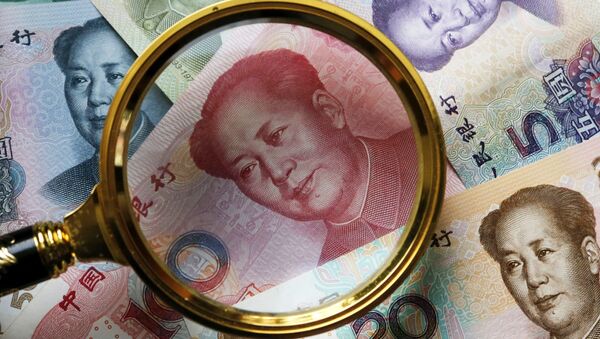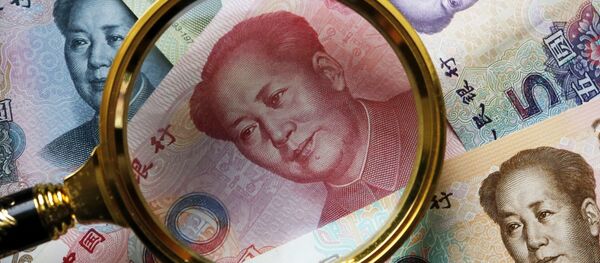Kristian Rouz – Mainland China’s monetary authorities lowered the renminbi’s fixed dollar exchange rate on Wednesday, pushing the dollar up and exacerbating concerns about a currency war: an international struggle for trade competitiveness.
The move arrives despite Beijing’s earlier vows that it would abstain from further devaluations, as the mainland’s international trade positioning remains feeble.
The PBOC lowered its renminbi reference rate by 0.3% on Wednesday to 6.5693 per dollar, pushing the greenback to a two-month high and dragging on other emerging market currencies. The mainland’s currency also posted a third consecutive day of retreat in Hong Kong trading, having dropped 0.1% to 6.5636 against the dollar.
"Compared to our model prediction, it’s a little bit weaker, so that’s quite significant," Irene Cheung of the Singapore branch of Australia & New Zealand Banking Group Ltd. said.
It seems likely that the PBOC decided to put their economic liberalization program on hold, a plan which included tighter integration into the IMF system. This would have boosted international trust in the renminbi, as the PBOC would have exercised more predictable policy practices. However, as the mainland’s international trade figures have hardly been improving recently, a devaluation was necessary to stave off a dramatic slowdown in the broader economy.
Previously, the renminbi rate tumbled in August amidst US Fed hike speculation, and in January, after the actual raise in US borrowing costs.
“It could be because the authorities want to alleviate some of the depreciation pressure before the Fed interest rate decision in June," Christy Tan of the Hong Kong branch of National Australia Bank Ltd. said. "If there are signs of panic dollar buying, the PBOC will step in."
The PBOC thus made it explicitly known that the authorities in Beijing are inclined to expect a Fed rate hike in June, which, given a riskier broader outlook, including Brexit concerns and sluggish US macro data, remains still unlikely to happen. However, the Chinese decision pushed select traders on Wall Street over the fence, and the dollar-buying trend prevailed throughout Tuesday, which is typical when the market anticipates a Fed hike.
According to BNP Paribas’ estimates, a 0.3% devaluation of the renminbi would add some $2.56 bln to Chinese corporate interest payments on their dollar-denominated debt. This is an additional risk that Beijing is presumably hoping to mitigate by boosting the nation’s international trade performance. However, the external-trade reliant models of growth have proven inefficient since the massive commodity slump of 2013 or earlier, so Beijing might be flogging a dead horse out of reluctance to speed up the pace of structural reform, incurring potential political risks.
Additionally, the ‘currency war’ approach is not yielding substantial foreign trade gains because during the past ten years, the international currency system devalued an overall 47%, and with a reversal in the US dollar FX rate dynamics, the disruptive global trade patterns prevent devaluations from boosting a certain nation’s competitive edge in the market.
Offshore renminbi was flat at 6.5662 per dollar, as traders in London were buying into renminbi-denominated bonds just a day prior to devaluation.
The offshore bonds release, undertaken by the Chinese foreign ministry just before the PBOC devaluation, might indicate a lack of coherent overall economic policy and an internal struggle between centers of regulative power in Beijing.





